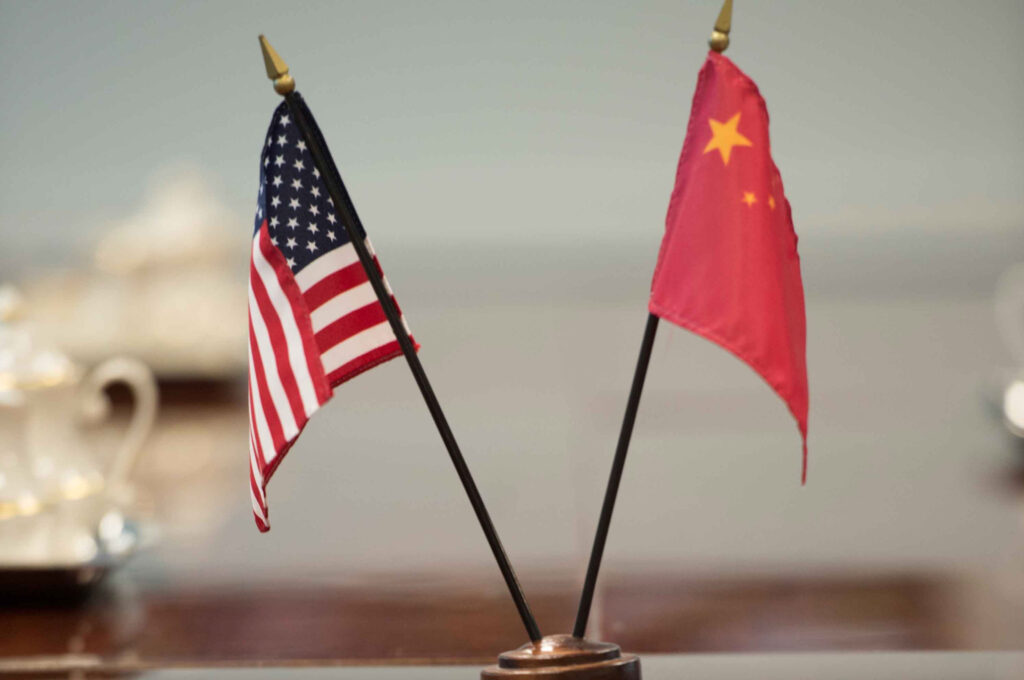SAN FRANCISCO — Today’s media discourse surrounding the United States and China tends to capitalize on the political and economic turmoil between the two countries. This focus overlooks the importance of cross-cultural education in redefining the diplomatic relationship between both countries, which are often contextualized as diametrically opposed global players, competing for global hegemony and influence.
Cross-cultural diplomacy is amplified by programs like the Yenching Academy of Peking University and Schwarzman Scholars of Tsinghua University. Each are master’s programs funded by the Chinese government for scholars to learn about China from an interdisciplinary and international perspective. Much like the Fulbright U.S. Student program, these two programs are intended to equip students with the tools to pursue future careers with a globally-minded perspective, and are critical examples of the importance of public tools in the 21st century.
As for differences between the two programs, the Yenching Academy offers a more theoretical humanities-oriented curriculum. Selected Yenching Scholars have the opportunity to choose which area of research they would like to focus their studies in, including subjects from History and Archaeology to Literature and Culture. Schwarzman Scholars take a more professional business-oriented approach. Required courses for Schwarzman Scholars include courses such as “Leadership in Business” and “Leadership in Diplomacy and Security.”
On an educational level, programs such as Yenching and Schwarzman inform their students about Chinese perspectives — perspectives that are often missing or ignored in Western media coverage of China. They provide the opportunity to refine an understanding of China not only in relation to the United States or Western hegemony but to also humanize its distinct identity and consider the challenges it faces as a nation.
On the other hand, such programs also disseminate what Western students may believe is Chinese propaganda, above all else.
Bethany Allen Ebrahimian of The Atlantic writes that because such programs are so closely aligned with the CCP, which has enabled their existence, this often leads to contradictory practices and a moral dilemma. How do these programs reconcile their professed educational purpose with political obstacles? To what extent can students reaping the benefits of these programs be considered “complicit” in the CCP’s political agenda? These are the questions that Ebrahimian believes define the controversy surrounding Sino-American exchange.
This conflict begins in the very selection process. In the process of investigating the politics of such programs, Ebrahimimian was told by a Schwarzman Scholars spokesperson that CCP officials have firsthand involvement in selecting the students that will participate in the program.
This aspect of admissions most likely means that the program is geared towards a particular kind of student: one who ideologically conforms to Party beliefs and avoids any dialogue that could be perceived as politically inflammatory. Ebrahimian believes that for a program that advertises itself as a forum for open educational exchange, Schwarzman Scholars appears to still place political interests at the forefront.
Andrew Jacobs, a former New York Times foreign correspondent based in Beijing, states that a program like Yenching is intended to “raise the global profile of Chinese universities” and increase positive sentiments about China and Chinese education. While this may be an admirable purpose from a nationalistic perspective, it also means that this education is politically-minded and will thus likely entertain a certain vision of national history and culture.
In those instances, Western students must serve as critical consumers of information. They must consider information presented more widely as less of an educational classroom discussion but as the experience of a Chinese reality.
In light of these elements, the challenge that programs like Yenching and Schwarzman face is overcoming the political divide that shaped their formation in the first place. Despite the fact that Peking University and Tsinghua University are widely known for their prestige as the two top universities in China, Western responses to these programs have centered on undermining their educational credibility in favor of projecting their own political suspicions onto their institutional caliber.
According to an article from NPR, the Federal Bureau of Investigation (FBI) questioned graduates of the Yenching Scholars program, asking whether or not their time in China had allowed them to participate in Chinese espionage efforts. From the perspective of these graduates, it seems like studying abroad in China has become linked to threatening national security. In looking at the United States’ response, it is paradoxical that the mission to bridge the gap between the United States and China has only widened it.
Moreover, on a pedagogical level, there is also concern as to whether or not students participating in these educational programs will be able to effectively study in China and from all points of view, especially given the concern of censorship. Topics like the Uyghur crisis in Xinjiang, the Hong Kong protests and Taiwanese independence are fraught with controversy. Potential students may wonder to what extent they are able to freely discuss these topics and how much “debate,” a core component of Western education, is exactly allowed.
In an article for SupChina, an alumnus (whose name was kept confidential) of the Yenching Scholars program defends the program against such concerns. The student criticizes the NPR article for framing the issue as a problem inherent in the government-funded Yenching Scholars program. They specifically target the article’s assumption that the goal of Yenching is to indoctrinate students into pursuing the Chinese Communist Party’s political agenda.
In fact, the student says, while subjects are always taught first and foremost from the Chinese government’s point of view, there is also room to nuance those ideas. This is an especially important element given the international bent of the Yenching Scholars program as a cross-cultural collaboration above all else.
“On several occasions, I personally raised the issue of the Chinese government’s concentration-camp-like policies in Xinjiang, including to a former prominent diplomatic official with deep ties to the Party,” the student writes. “Not once did I feel targeted, harassed or sanctioned for those comments, and often my classmates readily participated in the discussion.”
In contrast, Noah Lachs, a former Schwarzman Scholar, argues the exact opposite: that the very weakness of such educational programs lies in the polarization of the political contexts that contributed to their creation. He expresses that there exists a pressing disparity in Western and Chinese perspectives when it comes to viewing China as more than a one-dimensional concept. This has to do with the dominant narratives cultivated by each country for their citizens, which in turn informs the very nature of how subjects are taught.
“On three occasions when I broached [the subject of Xinjiang](twice with Chinese students outside the Schwarzman program), I was told that Uyghurs were responsible for a ‘genocide against Han Chinese people,’” Lachs writes. “This is not an arguable principle but a falsification. It is not possible to begin a dialogue on human rights or counter-extremism when such assumptions persist.”
To Lachs, there is no possibility of building ideological bridges because of the ways that overarching political differences are fundamentally rooted in individual viewpoints. In other words, there cannot be a dialogue because what the West believes are facts are presented as opinions in Chinese classrooms rather than truth.
Visually represented, the disparity that Lachs presents is akin to a Venn diagram. The distinct positionality of Western and Chinese points of view implies that there is no commonality, no overlap by which the two can meet.
The contradictions inherent in these two different experiences is emblematic of the political ideologies that surround contemporary discourse about China. Students of Yenching and Schwarzman, along with other educational programs, must be cognizant of their unique roles in cultivating the broader diplomatic relationship between the United States and China. Likewise, there also needs to be a greater understanding of the underlying factors that may undermine this mission.
It is clear that more than the issues discussed, the very programs themselves are rooted in political controversy. As such, it is essential to negotiate sociocultural understandings of such programs within the greater political divide.
Yet, when it comes to the role of education in the US-China relationship, education cannot be separated from its context. As Lachs writes, perhaps building bridges is not the right term. Perhaps it is evaluating whether or not there are the resources on both sides, particularly on the West’s part, necessary to even begin a discussion in the first place.






